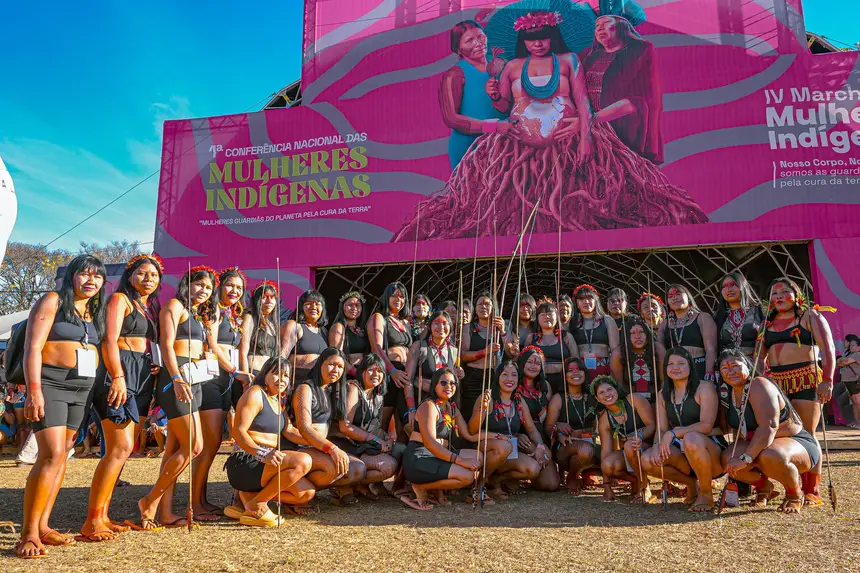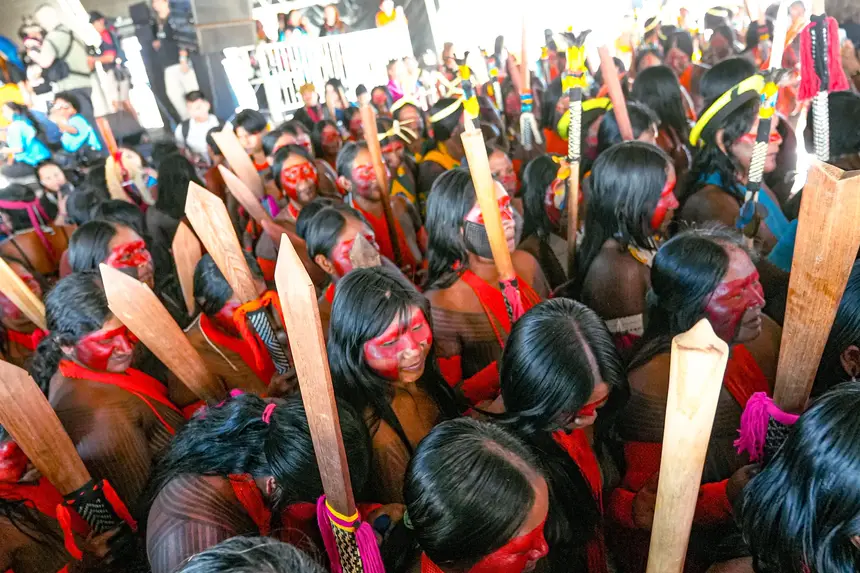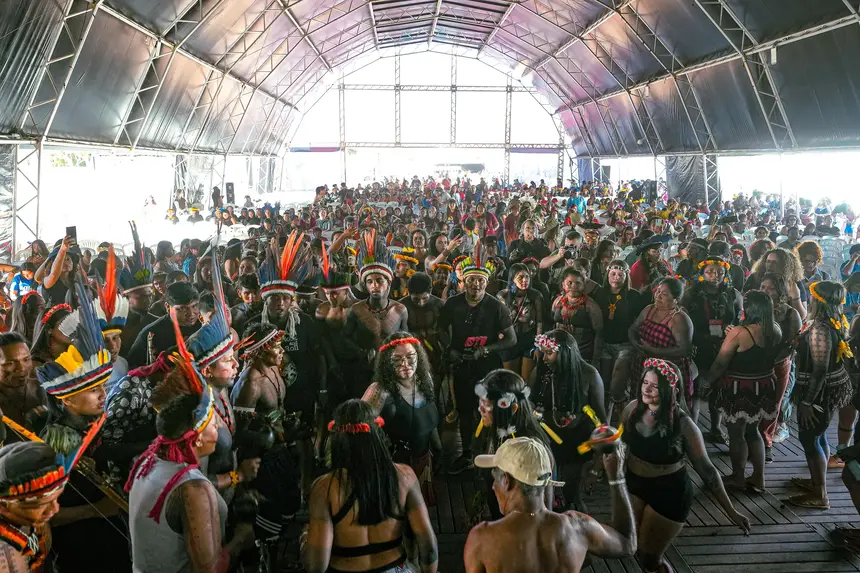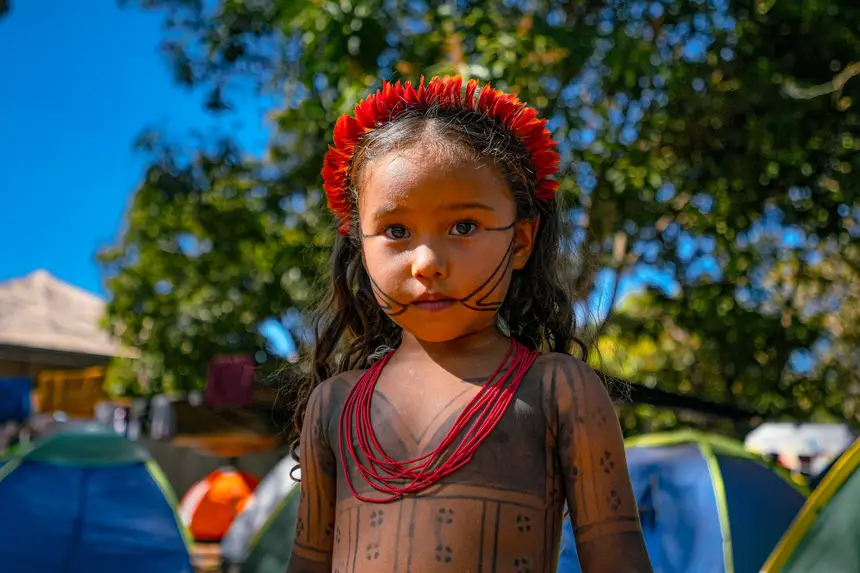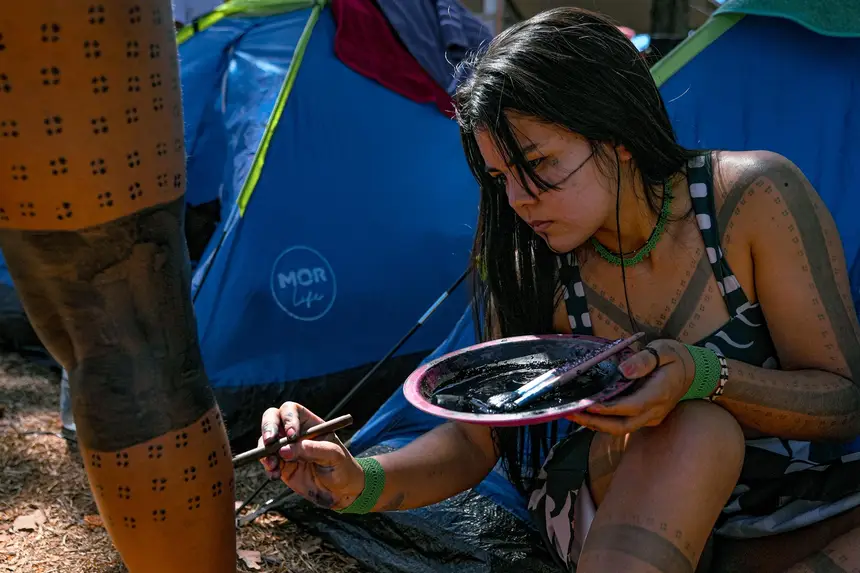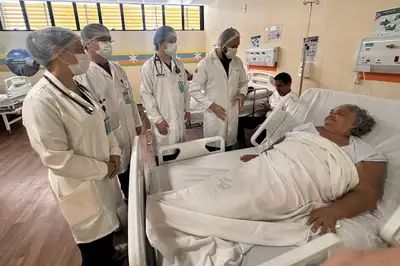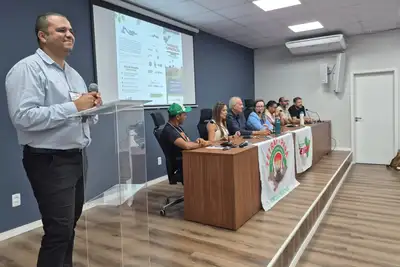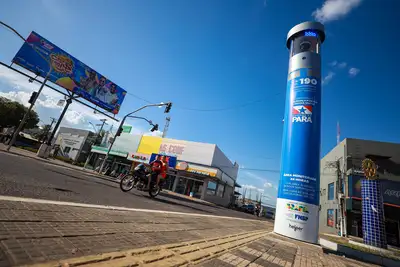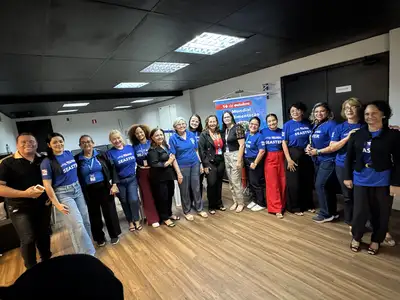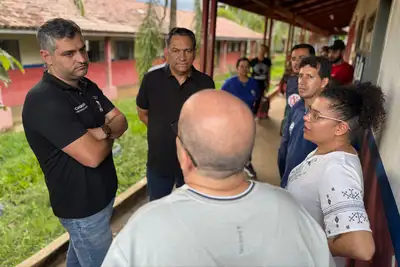Indigenous women from Pará stand out at the National Conference and IV March, in Brasília
The event is organized by the National Articulation of Warrior Women of Ancestrality (ANMIGA) and brings together indigenous leaders from Brazil's biomes
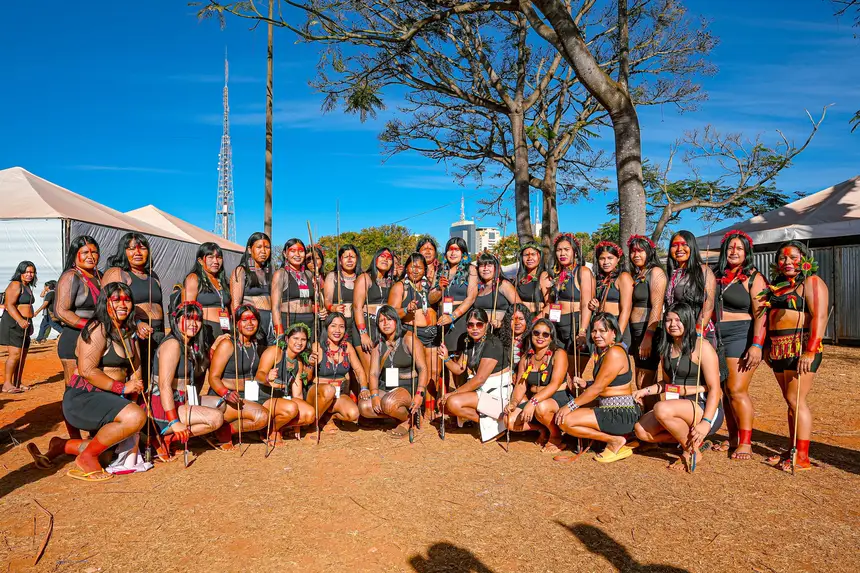
Hundreds of indigenous women from all biomes in Brazil are gathered in Brasília (DF) for the 1st National Conference and IV March of Indigenous Women. Since August 2nd and until next Friday (8th), they occupy the federal capital with an intense program marked by debates, plenaries, workshops, and public acts.
Pará is represented by delegations from the eight ethnoregions of the state, showcasing the leadership of indigenous women in defending the Amazon, fighting for the demarcation of territories, and building public policies aimed at indigenous peoples. The participation of women from Pará is supported by the State Government, through the Secretary of Indigenous Peoples of Pará (SEPI), and in partnership with the Federation of Indigenous Peoples of Pará (FEPIPA).

“Being here is a political and ancestral act. We come with the strength of all the women from our eight ethnoregions to say that the Amazon cannot be defended without indigenous women. We are on the front lines, guarding the forest, caring for the waters, protecting lives. This is our role, and it needs to be respected and strengthened in all public policies,” said Puyr Tembé, Secretary of Indigenous Peoples of Pará and one of the founders of ANMIGA.
The Conference and the March are organized by the National Articulation of Warrior Women of Ancestrality (ANMIGA), which brings together female leaders from all biomes in Brazil. Pará is part of the organization through various indigenous representatives from different territories, including Puyr Tembé, who is a founding earth woman of the articulation.
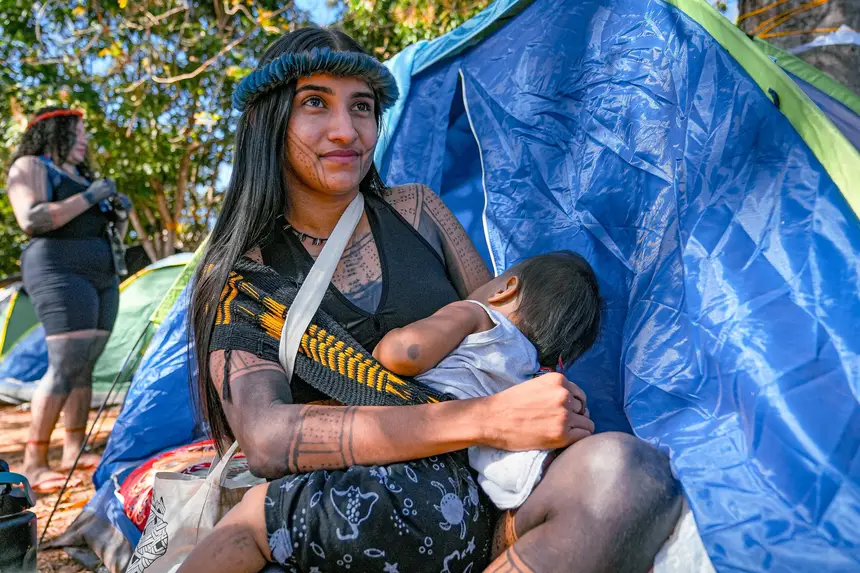
ANMIGA is a national articulation that connects indigenous women from different regions, strengthening those who are at the forefront of organizations and actions inside and outside the territories. The articulation is made by women with knowledge and struggles that come together, mobilized by the guarantee of indigenous rights and the defense of life. For the entity, indigenous women are guardians of ancestry and seeds of resistance, present in social movements and traditional practices that sustain their peoples.
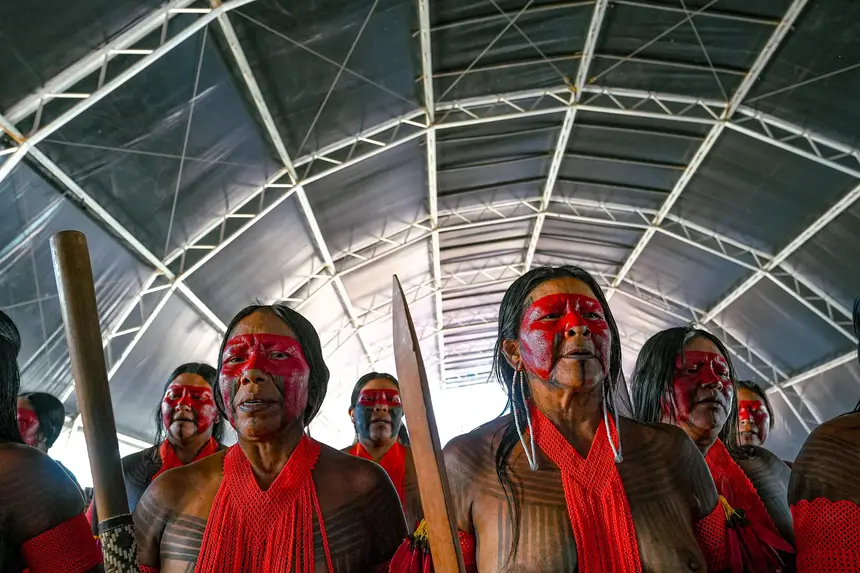
The event also featured the participation of the Minister of Indigenous Peoples, Sonia Guajajara. She conveyed the message about the importance of women's unity in defending rights and preserving traditional territories.
“We are expecting an average of 5 to 6 thousand indigenous women from all over Brazil. But we also have the participation of various women from other countries, which makes our march and our conference an international event. The ministries will present their actions and policies aimed at indigenous peoples. There will also be a cultural night, a lot of knowledge exchange, and our political debates — on territorial management, health, education, combating gender violence against indigenous women, and, of course, addressing the climate crisis,” explained Sonia Guajajara, Minister of Indigenous Peoples of Brazil.
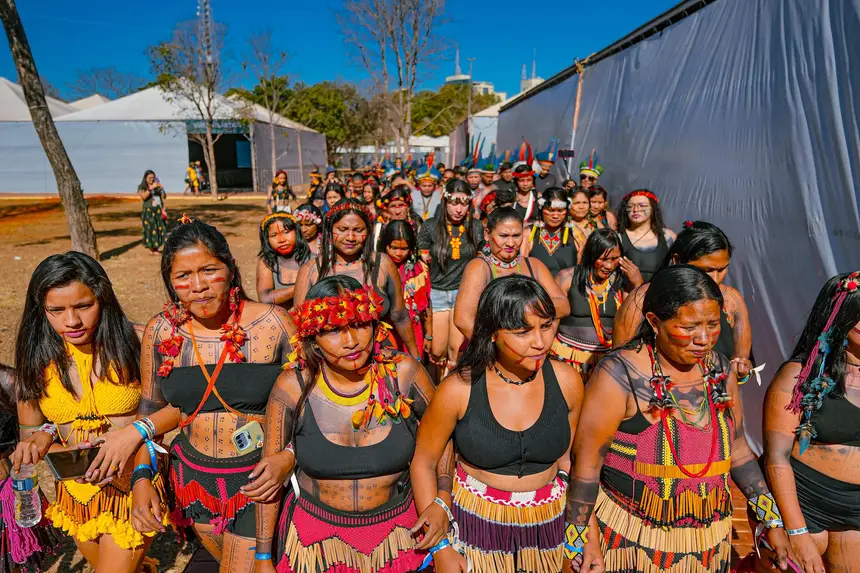
During the program, the delegations presented themselves with songs and dances, and the participants brought central themes such as climate change, protection of territories, environmental preservation, strengthening of female leadership, and defense of indigenous rights. The event is also a space for exchanging experiences and collectively building proposals to strengthen the actions of indigenous women on different fronts, from the field to institutional politics.
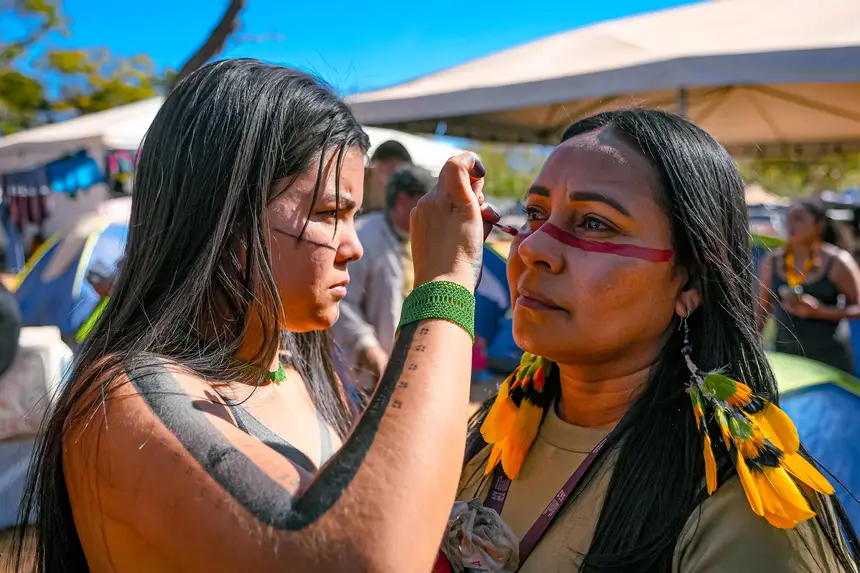
Mrs. Maria Xipaya, an elder of the Xipaya people from Altamira, reinforces the historical value of being present: “I have lived a lot and have seen many things change, but one thing does not change: our struggle to keep the forest alive for our grandchildren. I am here to teach and also to learn. Every step we take here is so that the children back in the village can grow up with clean rivers, good land, and the knowledge that came from our elders.”
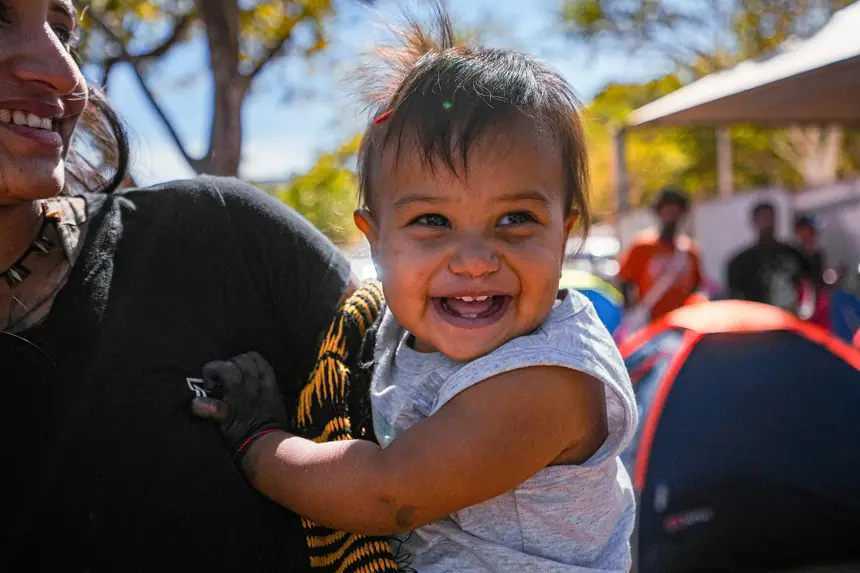
The Secretary of State for Indigenous Peoples (Sepi) emphasizes that the presence of the Pará delegations reinforces the strategic role of the state in the national and international scenario, especially in the climate and socio-environmental agenda, placing indigenous peoples at the center of discussions about the future of the Amazon.



